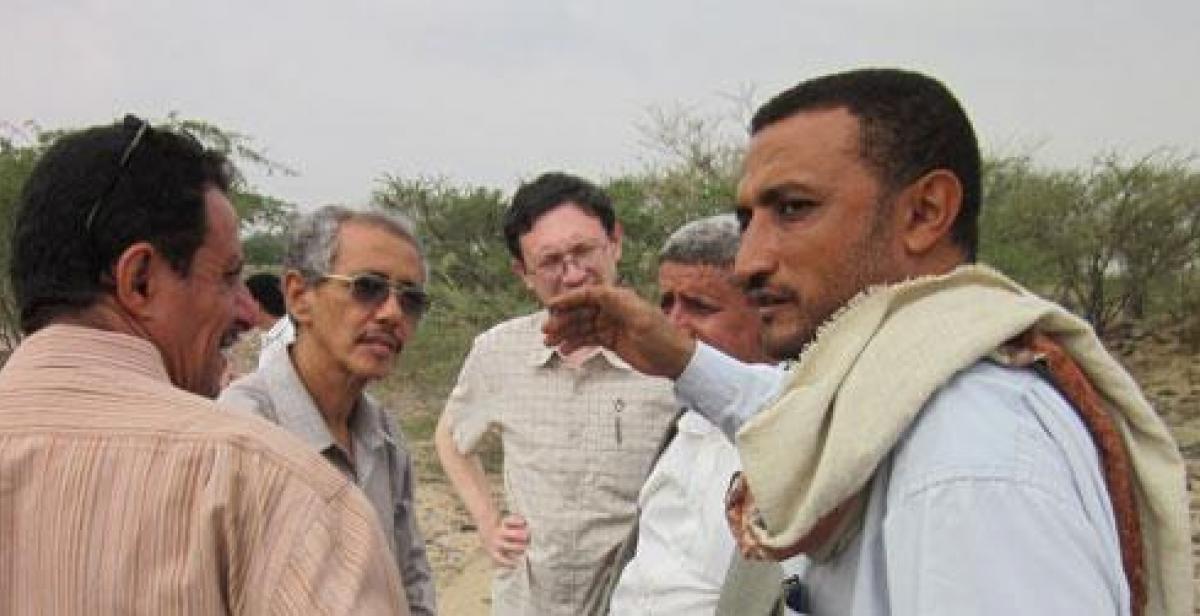Food shortages in Yemen have been causing concern now for many months, but recent weeks have seen increased alarm. What exactly is the situation? And what is Progressio doing?
What is the background?
Yemen was already a very poor country, with more than half of the population living on less than two dollars per day. Well before the current crisis, as many as 7.5 million people did not have enough to eat. This situation became much more difficult during 2011 when Yemen’s political crisis brought the economy to a halt. The prices of food and other basic commodities skyrocketed, and with unemployment soaring, the poorest have been struggling to buy essential food. Clean drinking water is also in very short supply, and this is leading to high rates of child diarrhoea.
Serious conflict within Yemen has also forced many people to leave home in search of safety. Major cities such as Sana’a, Taiz and Aden have seen violent protests while opposition movements in both north and south have gained strength. This context of violence and conflict has made it hard for many international organisations to reach people with assistance. The “Arab Spring” made a major impact in Yemen: it saw the voices of women and youth being heard in new positive ways, as well as elections for a new President, but the country’s security situation remains very difficult.
So what is happening now?
We are increasingly seeing this context of food insecurity turn into life-threatening malnutrition. For example, a recent government study in Hodeida found that over 30 percent of children under 5 years old are acutely malnourished – twice the emergency level – and worryingly high rates of diarrhoea. The most at risk groups include small families, women-headed households, and agricultural labourers. There is an urgent need for emergency food and nutrition support, but delivering this is made complicated by the difficult security situation in some areas.
Water and sanitation
Yemen is one of the world’s most water-scarce countries, and this is an important contributory factor to the humanitarian crisis. There is a large disparity between poorer and better-off households in terms of access to water and sanitation and the price paid for it. Only 62 percent of the population are using an adequate water source. Without clean water and adequate sanitation, diarrhoea and other water related diseases can spread easily. For young children diarrhoea combined with malnutrition can quickly become life-threatening.
What do people need?
Urgent assistance is needed to support households experiencing food shortages, and children suffering acute malnutrition. Alongside this, it is vital to tackle longer term needs such as improving water and sanitation. Progressio also believes that it is important to support local organisations so that they can play a full part in addressing both long and short term concerns.
How is Progressio helping?
Progressio is liaising closely with local and international organisations in order to help respond to emergency and longer-term water and sanitation needs in Hodeida. In particular, we are planning work with local organisations to improve their skills in meeting water needs.
We are also working to increase the involvement of poorer communities in decisions about water management and to improve their access to water in the long term. We are also helping to increase awareness of the impact of climate change on water resources in Yemen, so that key decision-makers are better able to predict and plan for changing weather patterns and future water needs.
In addition to our work on water in Yemen, we are continuing with existing projects which are tackling other pressing long-term development concerns – many of which tie into the current crisis.
For example, we are working with local authorities and civil society organisations to increase women’s participation in decision making. Women’s voices often struggle to get a hearing from decision makers such as government officials - but are crucial for getting poverty reduction strategies right. Their voices are also crucial in promoting the lasting peace that is so desparately needed in Yemen.
Our projects addressing HIV and AIDS in Yemen are also on-going, supporting people at risk of, or living with HIV and AIDS.
Find out more about our longer-term work in Yemen.
Can I support Progressio’s work in Yemen?
Yes, we would be pleased to receive on-line donations, or if you would prefer you can give via post but please let us know that the donation is for Yemen.
Photo: Progressio's Derek Kim (centre) meets with local farmers to learn about local irrigation techniques.



